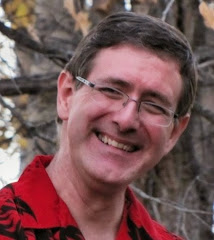This is the week to sign up for fall programs. The multiplex has their registration night on
Wednesday, clubs host open houses, organizations start advertising their
activities, and everyone hopes that people will come back and new folks
join. We have a smorgasbord of things we
can try in this community, from pottery to hand bells to yoga and gymnastics,
hockey, photography and golf. It’s hard
to choose. Some people do the same thing
year after year and others like to try something new every year.
I love signing up for new groups and trying out new
things. I have lost track of all the
different stuff I tried at one time or another.
There’s something wonderful in taking the brave step to see if I can
decorate a cake or macrame an owl. For a
moment the whole world feels open with great possibilities. Even though I never became a great cake
decorator or a prima ballerina, I had fun trying.
The spirit of exploration is something I tried to encourage
in my children too, as they grew up.
They could choose an activity, something physical for after school. One year, the gymnastics coach came up to us
and asked if my 8 year-old son would like to join the competitive boy’s
team. There were a few extra practises
that would be involved, and a few more fees to pay, but he could join the pre-Olympic
training program. Apparently, it wasn’t
too late for 8 year-olds to start to prepare to compete, but it was too late
for his 6-year-old sister who should have started competitive at the age of
five. Wow.
How many more practises were needed? Something like 4 days a week and two hours on
Saturday. Once they got older, it would
be 5 days and all Saturday. For a seven-year
old! I really didn’t know what to say. I
knew that some of my friends had their kids in a different program every night
of the week. One of my friends had her
kids in Guides, karate, swimming, guitar, dance and voice lessons. They seemed to thrive on it and one of them
even went to Julliard. Others built
their lives around hockey every night and on the weekends, or indoor soccer,
but I just couldn’t wrap my mind around being in the gym that many hours a
week. In the end, we decided as a family
to keep gymnastics as a fun activity that the kids did for several years, and
they can still do cartwheels or flips or fancy tricks on the trampoline from
time to time. One kid even earned some
money as an assistant coach one year.
But they never went to the Olympics and they never competed.
One of the things it made me do is look at what values I
believed in, and what did I want to pass on to my children. I believed in doing one’s best, working hard,
and keeping fit. I didn’t believe in
living vicariously through my children’s successes, or that competition was the
be all and end all of childhood. I wanted
my kids to have fun and enjoy life’s opportunities, and if something had become
a real passion for them, I would have supported that to the best of my
abilities. But my picture for them was
not to become famous or rich, but well-rounded and healthy.
God’s vision for us is not to become famous or rich. God’s vision is not just about
us as individuals either. God’s vision
is bigger than a parent’s for a child or a coach’s for a star player or a teacher’s
for a classroom. God’s vision is for
nations and countries and cultural groups as a whole. God wants to shape whole nations and even the
world like a potter shapes clay.
What is it that God calls us as a nation to? What is it that God wants us to repent of, to
turn from? What does God envision
shaping us into as a potter shapes clay?
What if we looked at the world through God’s eyes and asked
what we thought God would want from us?
What if we could see the storms on the East coast, the melting
permafrost, the vanishing glaciers, the starving polar bears and asked
ourselves what Canada would need to look like to be living in respect in
creation? What if we took seriously the
scripture, “For God so loved the World”?
As Jesus put it, who among us would build a skyscraper
without making sure they had a decent bank loan, engineering teams building the
blueprints, competent contractors and skilled trades workers to put the
skyscraper together? Yet we either can’t
or won’t look past our short-term pleasures and needs to the long term issues
of justice and sustainability. We have
an election coming up that will probably focus on character assassinations, oil
jobs and avoiding racist comments. Where
will the long-term vision be found, not just for Canada but for the whole
world? Who will ask the tough questions,
like why women politicians who talk about the environment have death threats
and foul language when they are out in public with their children? What kind of world do we want for our
grandchildren and great-grandchildren?
God calls us to look at our priorities. Jesus calls us to test our loyalties. And our United Church creed reminds us that
our faith is about love in action, to live with respect in creation, to love
and serve others, to seek justice and resist evil. To repent and turn to God who can make all
things new. Let’s sign up to live into
our creed, to listen to our potter, and heed the call of Christ, our coach and
teacher.
Dear God, help us rejoice in signs of hope like bamboo
cutlery and paper straws, electric cars and soap made from carbon capture
technology. Help us also roll up our
sleeves and commit to loving this beautiful world you have created. Amen.

